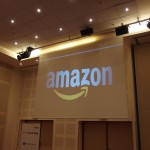More than a year ago, during a time when I barely knew anything about Cloud Computing or AWS, I was assigned along with a couple of colleagues on bringing an existing code base from “alpha” to “production” and ensure a smooth deployment to the Amazon Cloud. The customer wanted to “go live” in less than 3 months and be able to handle tens of thousands of visitors that would click on banners and fill their bank accounts; well, most likely they were just wishing for a good exit. On a side note, one of the photoplasty sections of the cracked.com website has an image about this type of business.
Starting the project
Things initially went to some direction – we dealt with many functionality issues, being able to fix and test more than 100 bugs and glitches; after all, this was the thing we knew best how to do and we also put in the long hours required for getting things done. We weren’t bothered by the cloud setup issues – the customer fiercely guarded the “keys to the kingdom” and agreed on instance and resource set-ups on a case-by-case basis only, all with the desire of keeping the Amazon bill as low as possible. We thought this was fine – it was their home, they knew best what they needed.
Trying to start a career in a Computer Sciences field is a challenge by itself; starting with a good company is, most of the time, a matter of luck. I’m not trying to provide an alternate view to this – yes, one needs a ton of luck in order to get on with a good start. I’m just trying to show you where the train you just boarded may lead you – or where it may not. Switching trains is by any means possible, but it becomes harder as one gets older.
Without looking in depth, companies may be divided in 2 main categories:
Product Owners: companies that build products for an actual market; they either sell software or provide services to private or business users through their internally managed infrastructure.
Outsourcers: companies that sell “work units” directly or indirectly to either companies from the first category or to other businesses.
There are nuances to this classification; government contractors and start-ups may actually deserve categories of their own.
What can a fresh graduate expect out of each company type?

Less than a month ago I have attended an event by Amazon called “AWSome Day“. Not a boring event, that’s for sure, but surely designed to mirror the company image: clean, complex and thoroughly customer-oriented.
The presentation day was split in 2 parts, the first one being lighter, more business oriented while the second (after lunch) being more technically focused. Nevertheless, one must not forget a very important detail: if no price is charged for a product (e.g. it is offered for free or looks like it is) then you, the one at the receiving end, are the product:
Amazon offered the venue, the presentations, the lunch and the refreshments for free and then ran the up class equivalent of a shameless sales pitch.
The products covered in depth or by the hands-on demo during the presentation were:
Elastic Compute Cloud (EC2)
Simple Storage Service (S3)
Content Delivery Web Service (CloudFront)
Relational Database Service (Amazon RDS)
There were more products mentioned or barely touched:
Everything considered, it was a full day. The full presentation is available on SlideShare (link) for those that want to take another look. Many slides were skipped due to the time constraint as there seem to be even more AWS products described in there.
At the end of the day one must not oversee a couple of important details when thinking about The Cloud and Amazon Web Services in particular; AWS – as a product collection – is, feature and interface wise, a couple of years ahead of the competition. NB: yes, there is competition, there are multiple companies providing similar services, sometimes in a cheaper or in a most cost effective way than Amazon.
From my point of view AWS should be the way to go for:
Experiments, test deployments or temporary solutions;
Non-production environments with fluctuating lifetime and composition (e.g. for development and/or qa);
Handling unusually high loads for few days during the year (e.g. traffic peaks on Black Fridays or during the Christmas Sales);
Medium and long term data storage (backups).
If one has a fixed environment that will not change or scale in a significant manner for one year or more (e.g. a production-level website and/or a SaaS type of product), AWS may not actually be the only cost effective solution to look for.
Conclusion: if there is such event near you, go secure your seat! But don’t forget that you are actually being sold something.